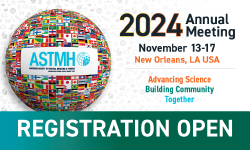-
1.
Stamm LV, 2016. Zika virus in the Americas: an obscure arbovirus comes calling. JAMA Dermatol 152: 621–622.
-
2.
Oster AM, 2016. Interim guidelines for prevention of sexual transmission of Zika virus: United States, 2016. Morb Mortal Wkly Rep 65: 120–121.
-
3.
World Health Organization (WHO), 2016. Zika Virus, Microcephaly and Guillain-Barré Syndrome Situation Report. Geneva, Switzerland: WHO.
-
4.
Pan American Health Organization (PAHO), 2016. Zika Suspected and Confirmed Cases Reported by Countries and Territories in the Americas Cumulative Cases, 2015–2016. Washington, DC: PAHO/WHO.
-
5.
Pan American Health Organization (PAHO), 2017. Zika-Epidemiological Report Cuba. Washington, DC: PAHO/WHO.
-
6.
Gorry C, 2016. Cuba confronts Zika: all hands on deck. MEDICC Rev 18: 6–10.
-
7.
Reardon S, 2016. Mosquito guns and heavy fines: how Cuba kept Zika at bay for so long. Nature 536: 257.
-
8.
Pan American Health Organization (PAHO), 2016. Zika Virus Infection: Step by Step Guide on Risk Communications and Community Engagement. Washington, DC: PAHO/WHO.
-
9.
Toledo M, Pérez D, Castro M, 2014. Contribuciones de la participación comunitaria en el control del mosquito Aedes aegypti y la prevención del dengue. Guzmán M, ed. Dengue. La Habana, Cuba: Editorial de Ciencias Médicas.
-
10.
Pérez D, Castro M, Manuel Álvarez Á, Sánchez L, Toledo ME, Matos D, Van der Stuyft P, Lefèvre P, 2016. Traslación a la práctica de estrategias de empoderamiento en la prevención del dengue: facilitadores y barreras. Rev Panam Salud Publica 39: 93–100.
| Past two years | Past Year | Past 30 Days | |
|---|---|---|---|
| Abstract Views | 446 | 361 | 52 |
| Full Text Views | 524 | 18 | 0 |
| PDF Downloads | 190 | 15 | 0 |
Why Did Zika Not Explode in Cuba? The Role of Active Community Participation to Sustain Control of Vector-Borne Diseases
Search for other papers by Marta Castro in
Current site
Google Scholar
PubMed
Search for other papers by Dennis Pérez in
Current site
Google Scholar
PubMed
Search for other papers by Maria G. Guzman in
Current site
Google Scholar
PubMed
Search for other papers by Clare Barrington in
Current site
Google Scholar
PubMed
As the global public health community develops strategies for sustainable Zika prevention and control, assessment of the Cuban response to Zika provides critical lessons learned. Cuba’s early and successful response to Zika, grounded in the country’s long-standing dengue prevention and control program, serves as a model of rapid mobilization of intersectoral efforts. Sustaining this response requires applying the evidence generated within the Cuban dengue program that active community participation improves outcomes and is sustainable and cost-effective. There is also a need for implementation science efforts to assess the transferability of lessons learned from Zika prevention and control to other pathogens and from one context to another in addition to how to take these efforts to scale.
Author Notes
Authors’ addresses: Marta Castro and Dennis Pérez, Epidemiology, Instituto de Medicina Tropical Pedro Kouri, Havana, Cuba, E-mails: martac@ipk.sld.cu and dennis@ipk.sld.cu. María G. Guzmán, Virology Department, WHO Collaborating Center for Viral Diseases, Institute Tropical Medicine Pedro Kouri, Havana, Cuba, E-mail: lupe@ipk.sld.cu. Clare Barrington, Health Behavior, Gillings School of Global Public Health, University of North Carolina at Chapel Hill, Chapel Hill, NC, E-mail: cbarring@email.unc.edu.
-
1.
Stamm LV, 2016. Zika virus in the Americas: an obscure arbovirus comes calling. JAMA Dermatol 152: 621–622.
-
2.
Oster AM, 2016. Interim guidelines for prevention of sexual transmission of Zika virus: United States, 2016. Morb Mortal Wkly Rep 65: 120–121.
-
3.
World Health Organization (WHO), 2016. Zika Virus, Microcephaly and Guillain-Barré Syndrome Situation Report. Geneva, Switzerland: WHO.
-
4.
Pan American Health Organization (PAHO), 2016. Zika Suspected and Confirmed Cases Reported by Countries and Territories in the Americas Cumulative Cases, 2015–2016. Washington, DC: PAHO/WHO.
-
5.
Pan American Health Organization (PAHO), 2017. Zika-Epidemiological Report Cuba. Washington, DC: PAHO/WHO.
-
6.
Gorry C, 2016. Cuba confronts Zika: all hands on deck. MEDICC Rev 18: 6–10.
-
7.
Reardon S, 2016. Mosquito guns and heavy fines: how Cuba kept Zika at bay for so long. Nature 536: 257.
-
8.
Pan American Health Organization (PAHO), 2016. Zika Virus Infection: Step by Step Guide on Risk Communications and Community Engagement. Washington, DC: PAHO/WHO.
-
9.
Toledo M, Pérez D, Castro M, 2014. Contribuciones de la participación comunitaria en el control del mosquito Aedes aegypti y la prevención del dengue. Guzmán M, ed. Dengue. La Habana, Cuba: Editorial de Ciencias Médicas.
-
10.
Pérez D, Castro M, Manuel Álvarez Á, Sánchez L, Toledo ME, Matos D, Van der Stuyft P, Lefèvre P, 2016. Traslación a la práctica de estrategias de empoderamiento en la prevención del dengue: facilitadores y barreras. Rev Panam Salud Publica 39: 93–100.
| Past two years | Past Year | Past 30 Days | |
|---|---|---|---|
| Abstract Views | 446 | 361 | 52 |
| Full Text Views | 524 | 18 | 0 |
| PDF Downloads | 190 | 15 | 0 |








